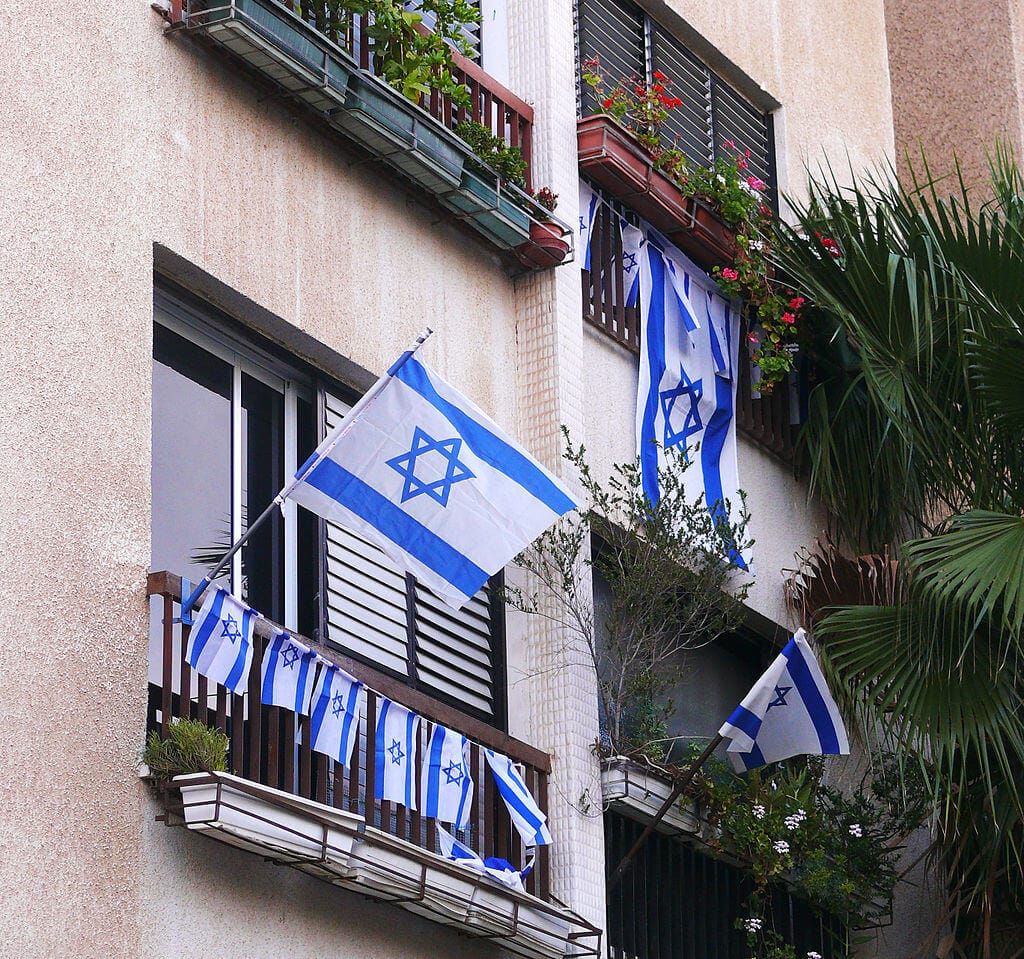Over five Rosh HaShanas ago, I made aliya (immigrated to Israel) from America. I cannot even count how many Israelis have asked, “why?”
A typical Israeli might go on to say “but you have everything in America!” such as opportunity, wealth, less expensive iPhones, all the “necessities” of life. Other Israelis express pride and admiration, but even this is based on the understanding that I left something better to come to someplace worse, that I made a sacrifice.
They aren’t entirely wrong. Some things do work better in America, some things are easier. Yet other things are harder. The truth is, it’s a mixed bag, and each person who considers aliya must decide which aspects of life are most important.
But how to communicate this to a lifelong Israeli?
Join the fight for Israel’s fair coverage in the news
I start by explaining that not all Americans are rich and the streets aren’t paved with gold. Some things are better while others are worse. I talk about my work in Israel which I find meaningful, as compared with my well paying but ultimately unsatisfying career as a lawyer in America.
None of that seems to strike home.
Until I mention one critical fact: on Shabbats and holidays, my former synagogue in Chicago has a police guard posted outside.
The Israeli reaction? Shock.
Israelis are used to seeing guards in shopping malls and bus stations, even guarded fences outside certain communities in high tension areas, but armed police outside a synagogue? In the middle of a relatively peaceful, modern city? It just doesn’t make sense!
“Why?” they ask in disbelief.
“Because some people want to hurt us,” I explain. “Yes, even in America.” Just this week, columnist Stav Ziv explored this very topic in Newsweek, pointing out:
Many [American] synagogues draw their largest crowds of the year on Rosh Hashanah and Yom Kippur, and with so many people gathered in one place, congregations worry that they may become targets. “During the holidays, there’s a high degree of anxiety and attention” on security, said Jonathan Greenblatt, CEO of the Anti-Defamation League (ADL). “I think the whole country is on notice.”
I’ve seen swastikas painted on synagogues, and words like “Apartheid!” or even “Screw Israel!” (Except they didn’t exactly write the word “screw”). I’ve seen Israeli flags destroyed, windows shattered, I have friends who were harassed for walking down the street in a kippah, and I’ve seen private homes vandalized for flying an Israeli flag.
Don’t get me wrong: America is (relative to much of the world) a safe and welcoming place to be Jewish. Yet in many situations an American Jew must think twice about whether it’s wise to be too openly pro-Israel, or even too openly Jewish.
And, of course, many synagogues are (out of necessity) guarded by police.
Then I came to Israel.

On Independence Day I fly an Israeli flag outside my window without a second thought. When I wear a kippah on the street, I don’t even think twice about safety. I express (and debate) my political opinions about Israel without an ounce of fear, and I don’t have to be careful about who knows that I’m Jewish.
And my synagogue doesn’t even need a police presence. Imagine that!
I feel safe. That’s the bottom line: despite all the drama and headlines about war and terror and conflict, in Israel I feel safe.
Since I originally wrote this post, America suffered a horrible shooting in Las Vegas, which took the lives of at least fifty innocent people. Other shootings, such as the one last year in Orlando, FL, took similar numbers of lives. Though these attacks are not specifically related to being Jewish, it is still shocking to Israelis.
Why?
Because even in the relatively rare event that Israel’s superb security services fail to preempt an attack entirely, quick responding police and citizens usually stop the attack in its progress. That’s why casualty numbers in Israel are usually zero to four or five, (such as in the shooting attack last year in Israel’s Sarona Market which claimed four lives) instead of casualties in the dozens, as in America.
When I explain all this to Israelis, suddenly they understand: that the feeling of safety and of being “at home” that they take for granted is actually special and rare in this world. Similarly, the feelings of caution and constant low level fear that many Americans take for granted need not be a part of life. In fact they should not be a part of life.
After five Rosh HaShanas and Yom Kippurs in Israel, I’m very conscious of the changes that aliya brought to my life. I face some new challenges that I never thought would be relevant, and I experience rewards that I never imagined possible.
Most of all, I live in an environment that is fundamentally different from the headlines and narratives that bombard us every day.
Shana Tova, and Gamar Hatima Tova.
Flags image: CC BY MathKnight and Zachi Evenor; Featured image: CC by Brett Gustafson with modifications;



